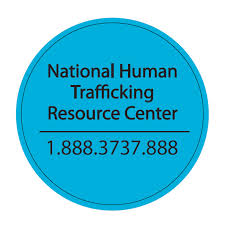 A proposal to help people escape the horrors of human trafficking passed the Illinois General Assembly today.
A proposal to help people escape the horrors of human trafficking passed the Illinois General Assembly today.
The measure requires the state government to post signs warning about the dangers of human trafficking and display the phone number of the national human trafficking hotline in high-traffic areas, such as truck stops, bus stations, train stations, airports and rest stops.
“We need to make sure that human trafficking phone number is posted in places victims might actually see it,” said state Senator Julie Morrison (D-Deerfield). “Public transit hubs are among the few places they actually see.”
More than one study has identified Chicago as a national hub of human trafficking, but exact numbers are hard to pinpoint. A 2007 study estimated that 16,000 to 25,000 women and girls are involved in the commercial sex trade in the Chicago metropolitan area, and at least some of them are likely victims of human trafficking.
Human trafficking isn’t limited to Chicago or the sex trade. In 2005, federal authorities busted seven brothels in Rockford that exploited human trafficking victims. And some victims are forced to perform labor rather than sex, essentially making them modern day slaves.
The idea for the bill came from 2014 media reports about failures at the Department of Children and Family Services.
“Some of the girls from DCFS residential treatment centers who ended up victims of prostitution talked about traveling through truck stops and bus stations,” Morrison said. “I was furious that kids in state care ended up victims of human trafficking, and I wanted to find a way to help them.”
Morrison’s legislation is supported by a broad coalition of human service groups, including the Illinois chapters of the National Association of Social Workers, the Catholic Conference and Foster Care Alumni of America.
The legislation is Senate Bill 43. It now goes to the governor.




